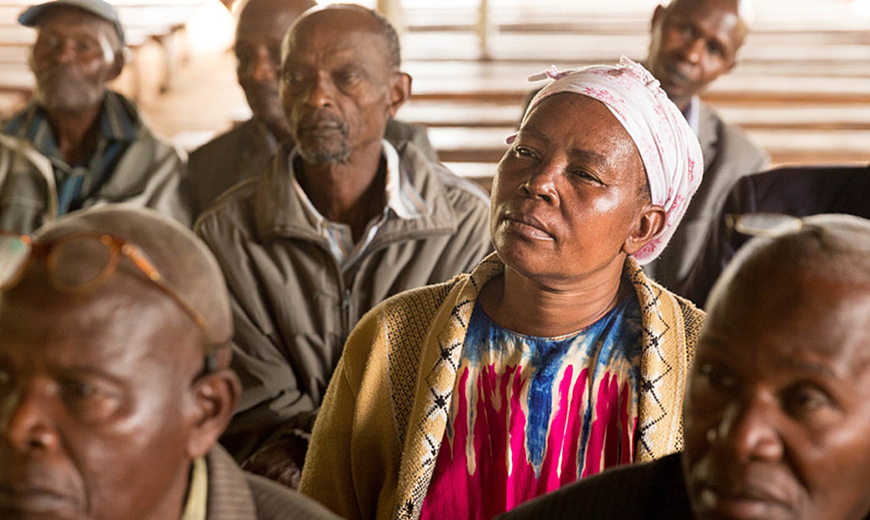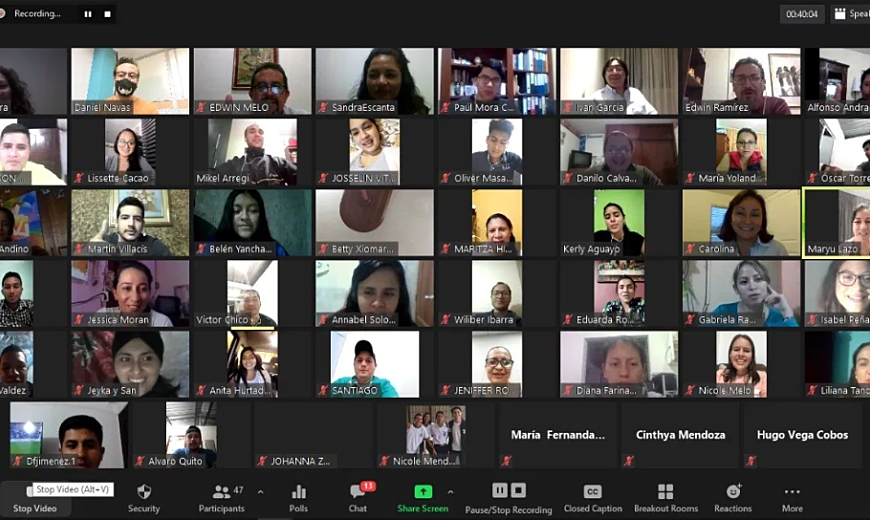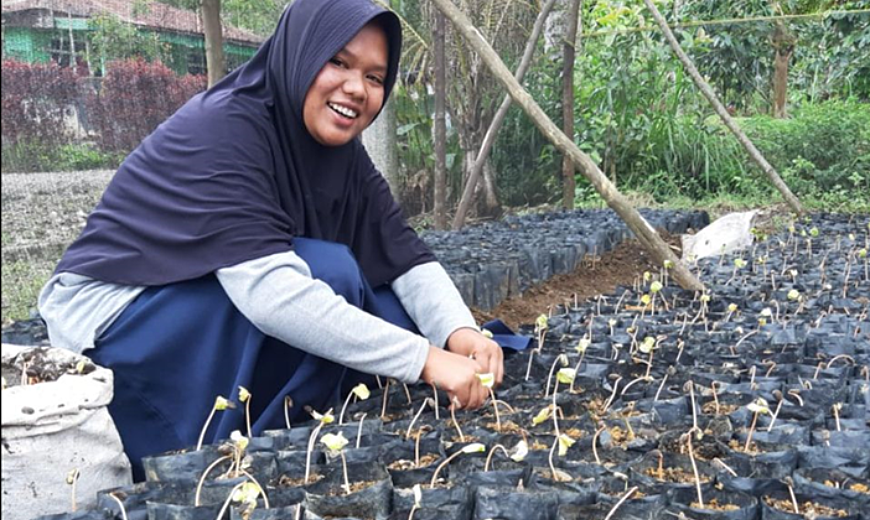Contact the communications team
E-Mail: press@fairtrade.net
4 Jun 2021
Climate and social justice cannot be separated. One influences the other, and this becomes extremely evident when paying close attention to how changing weather patterns affect farmers across the world. They have no choice but to adapt in order to secure their livelihoods with limited resources.
As higher temperatures and extreme weather conditions become more prevalent, switching to resilient and sustainable production becomes critical. And yet, at a cost that farming communities who struggle to earn a living income might not be able to afford.
This would also mean a product you love might not be available anymore, or the supply chain your business relies on might not be viable. We are all part of this ecosystem, and therefore we all have a responsibility to drive positive change. Climate and social justice is not possible if we work in isolation. At Fairtrade we bring several partners, such as businesses, governments, organisations and producers together, to address this. As we look ahead to World Environment Day, here are three recent examples
The Climate Academy in Kenya aimed to increase the resilience of coffee farmers. To do this, raising awareness of climate change was a crucial starting point, however, it was also imperative to equip them with practical skills that can be applied.

“People who don’t see climate change are not realistic; everybody sees where the world is going,” noted Paul Ngei Musila, a manager at Musilili Farmers’ Cooperative Society. “This year for example, the rains began in March where they don’t usually start. You can see there is climate change. Sometimes when we are expecting dry conditions like in August, you will see rain. It is evident there is change. And this affects coffee production.”
In total 8,500 farmers have participated, out of which 80% applied new cultivation techniques. This also meant 20% more shade trees are now on coffee fields.
Based on what was learned over a period of three years, the academy recently made available a guide to even more coffee farmers (including beyond Fairtrade) to better support them in assessing weather patterns, risks and what to do about them.
Find out more about the academy and download the guide
The project EXCHANGE in Latin America and the Caribbean seeks to tap into the power of young people as climate leaders. It aims to increase the recognition of small producers as key actors in promoting adaptation and mitigation of climate change. Acknowledging their capabilities and need for advocacy skills.
As part of this, a Climate Leadership Academy took place in Ecuador, Bolivia, Guatemala, and Nicaragua. A total of 112 young people from 41 Fairtrade certified organizations eagerly participated. Even if lately it had to be online due to the pandemic.

“I have been trained as a leader in the face of climate change, it has been a very important issue for us. We have also learned about the importance of leadership in our networks, in our organizations and as young people we have committed to undertaking new challenges, taking care of the environment” said Irene Huarachi Arcayne, producer of the National Association of Quinoa Producers (ANAPQUI) and representative of youth in the Quinoa Network in Bolivia.
You can read more about the graduates of the academy here
In the Asia Pacific region, the majority of Fairtrade coffee producers are in Indonesia, a country that is subjected to erratic weather patterns. Alongside the multiple hardships they encounter daily, the COVID-19 crisis was yet another challenge added to the equation. This meant that several funds usually allocated to farm rehabilitation and regeneration had to be diverted for immediate support against the pandemic.
Considering this, the Koptan Gayo Megah Berseri Cooperative (with the support of external partners) is now running a project with positive impact on farming practices and their community .They now have their own a coffee-seeds nursery, as opposed to purchasing seedlings from others.

Coffee plants are unique and require specific location, altitude, and microclimate necessary for their growth. By allowing the members to manage the nurseries they can jointly take the decision to select the best variety that is suitable to their location. It also encouraged young people to participate and get new skills. The total size of the farm covered in the project is 1090 Hectares, benefitting 1021 smallholder members of the cooperative.
Learn more about the project here.
These are just a few examples of many others across the world. To learn more about Fairtrade and the Environment, visit this page.
We can all play a role and make choices which are better for people and planet. What choices will you make?
E-Mail: press@fairtrade.net